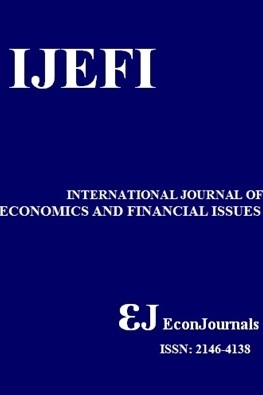The Mediating Influence of Team Alignment on the Relationship between Plant Turnaround Maintenance Planning and Plant Turnaround Maintenance Performance
The Mediating Influence of Team Alignment on the Relationship between Plant Turnaround Maintenance Planning and Plant Turnaround Maintenance Performance
Plant Turnaround Maintenance, Team Alignment, Management, Planning Performance, Mediation,
- Başlangıç: 2011
- Yayıncı: İlhan ÖZTÜRK
Government Spending in Indonesia 2005-2013 from Islamic Economic Perspective
Yuli ANDRİANSYAH, M. Bekti Hendrie ANTO
A. Widya-Hastuti, Noraini Bt Abu Talib, Kuan Yew Wong, Abbas Mardani
Hacine Gherbi Elhachemi, Mohammad Azmi Othman
Insurable Interest in Takaful: A Theoretical Contrivance for Islamic Insurers
Yusuf Abdul Azeez, Abdullahi Saliu Ishola
Default Prediction in Pakistan using Financial Ratios and Sector Level Variables
Suresh Ramakrishnan, Agha Amad Nabi, Melati Ahmad Anuar
Lock-up Expiry and Trading Volume Behaviour of Malaysian Initial Public Offering’s
Abdolhossein ZAMENİ, Othman YONG
Ownership Structure, Corporate Governance and Firm Performance
Pang Elvin, Nik Intan Norhan Bt Abdul Hamid
The Effectiveness of Fraud Prevention and Detection Methods at Universities in Indonesia
Faiz Zamzami, Nabella Duta Nusa, Rudi Prasetya Timur
Jalal ud Din Akbar, Zulkipli B. Ghazali
Al‑‘aqd Al‑sahih: The Legal Basis for Determining the Validity of Islamic Financial Transactions
Abdullahi Saliu Ishola, Yusuf Abdul Azeez, Norfadhilah Mohamad Ali
